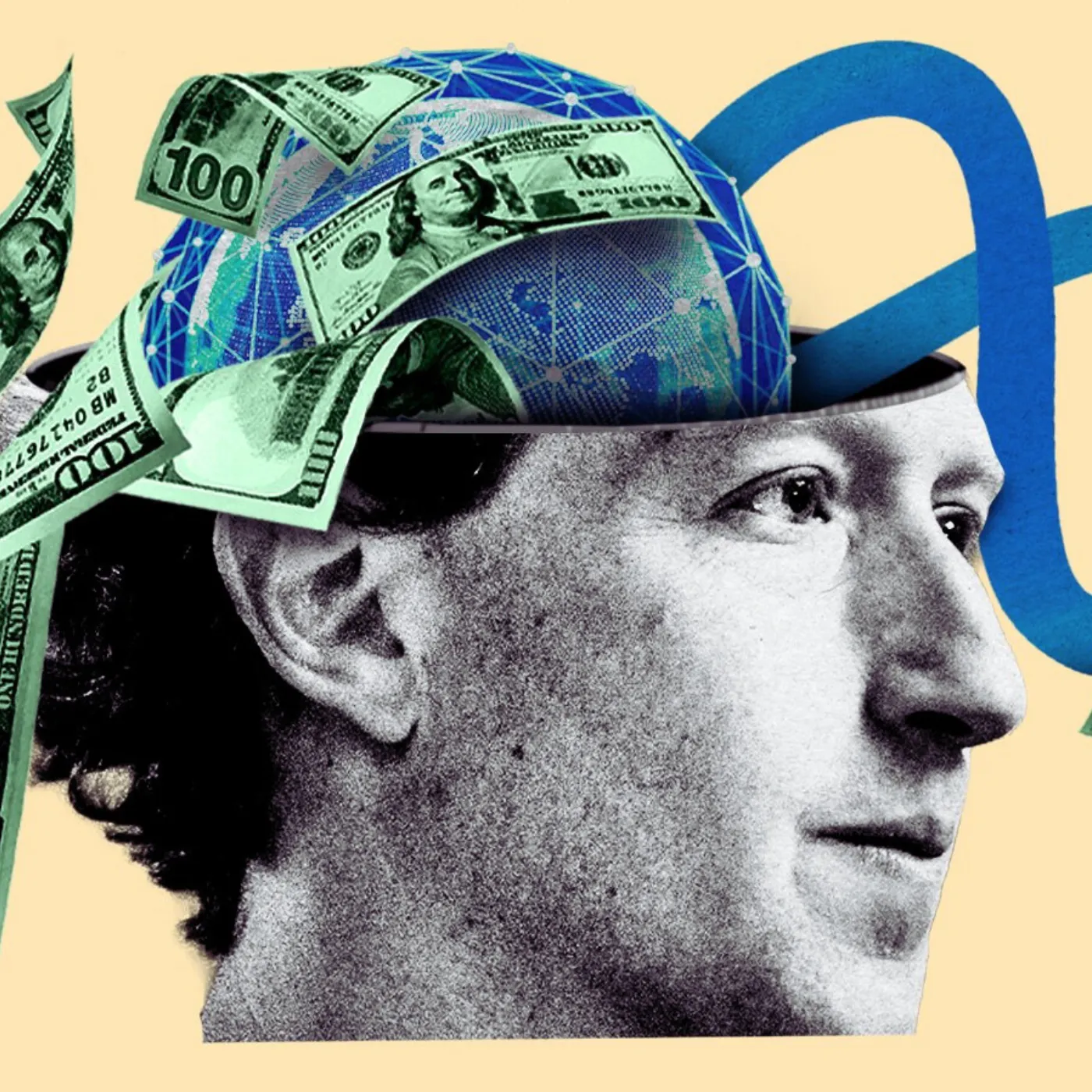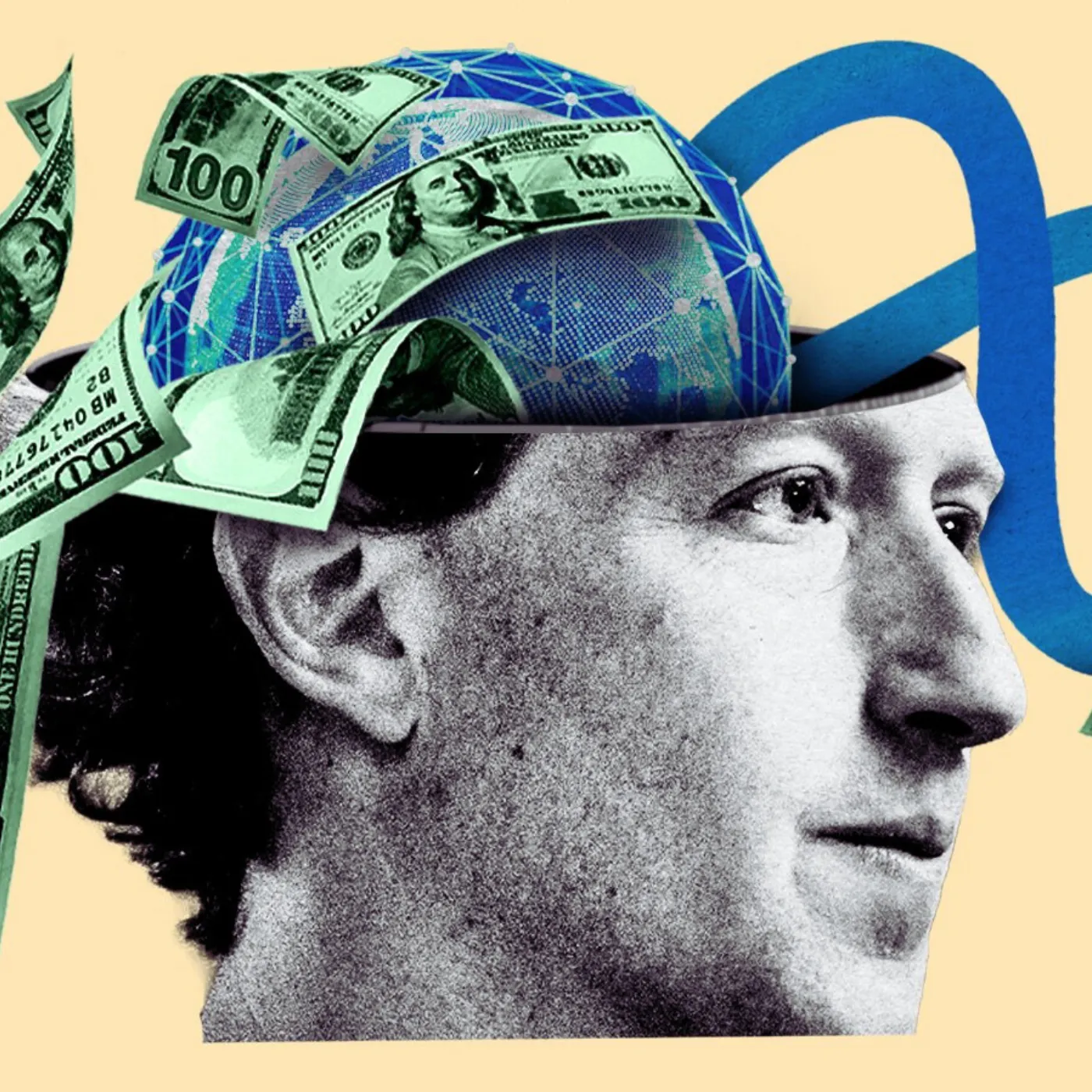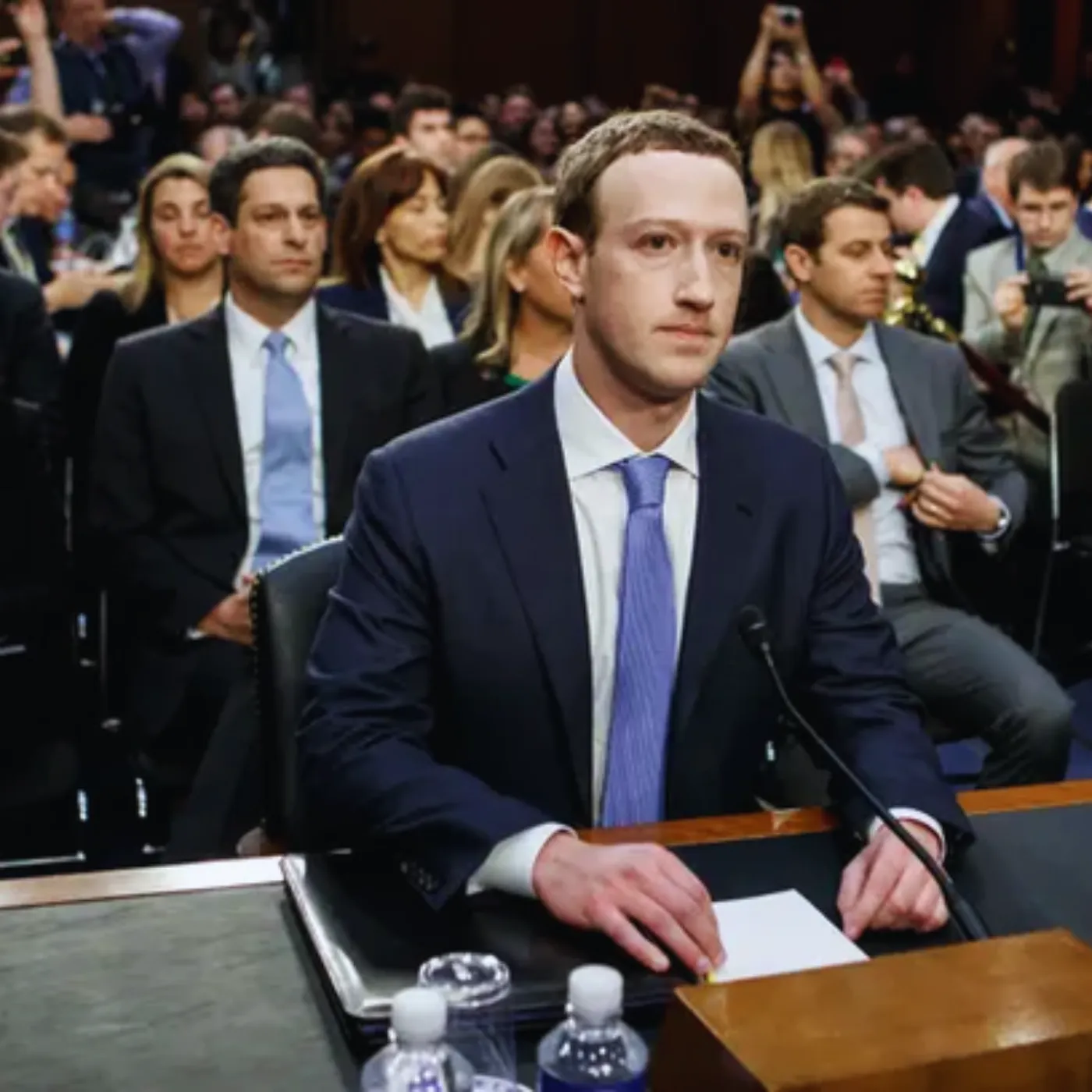

Mark Zuckerberg Just Dropped a Billion-Dollar Truth Bomb—And Silicon Valley Is Shaking
When you think of Mark Zuckerberg, one of the first images that comes to mind is the hoodie-wearing billionaire who built Facebook from his Harvard dorm room and turned it into one of the most powerful tech empires in history. But behind the headlines of success, IPOs, and mind-bending acquisitions lies a story that Zuckerberg himself once admitted: he made an early mistake that cost him billions. And what’s even more shocking? He later shrugged it off with a simple, almost dismissive message: “It’s fine.”

This contradiction—between losing billions and then acting as if nothing happened—has sparked heated debates across Silicon Valley and beyond. How could the CEO of Meta casually dismiss what most founders would call a death sentence for their companies? Why does Zuckerberg appear almost cold-blooded about an error that nearly shook the foundation of his empire?
This is the story of that mistake, why it mattered, and why Zuckerberg’s reaction says more about the future of Big Tech than any press release or shareholder letter ever could.
The Billion-Dollar Blunder Nobody Expected
To understand the magnitude of this misstep, you have to go back to Facebook’s early days. Long before Instagram, before WhatsApp, and way before the pivot to the metaverse, Zuckerberg was navigating uncharted waters. He wasn’t just building a website—he was reshaping the way humans interacted online.
But innovation at breakneck speed often comes with errors, and Zuckerberg’s came in the form of a strategic oversight that insiders claim cost Facebook billions in potential revenue.
What was it? According to former executives and analysts, Zuckerberg underestimated the mobile revolution. In the late 2000s, when smartphones were rapidly becoming the centerpiece of people’s lives, Facebook was still primarily designed as a desktop platform. While Twitter, YouTube, and even emerging apps like Snapchat leaned into mobile-first experiences, Facebook lagged behind.
By the time Facebook realized how critical mobile would be, it had already lost billions in potential advertising revenue. The app was clunky, slow, and downright painful to use compared to other platforms. For a company whose survival depended on user attention, this was not just a small bug—it was a billion-dollar nightmare.
Zuckerberg’s Shocking Admission
In a rare public moment of self-awareness, Mark Zuckerberg admitted that Facebook had been slow to pivot to mobile, calling it one of the biggest mistakes in the company’s history. For a man often painted as robotic, unemotional, and hyper-calculated, the admission was both surprising and refreshing.
But then came the twist. After acknowledging the blunder, Zuckerberg did what only Zuckerberg would do—he downplayed it. His exact sentiment: it was “fine.”
For ordinary entrepreneurs, losing billions would be devastating. For Wall Street CEOs, it could mean immediate dismissal. But for Zuckerberg, the error was simply part of the game. His casual dismissal raised eyebrows, sparking questions about whether he was being arrogant, reckless, or simply pragmatic.
Why “It’s Fine” Actually Makes Sense
At first glance, Zuckerberg’s reaction looks dismissive, even tone-deaf. But dig deeper, and you’ll find a philosophy that explains not just this mistake, but the way he runs his empire.
-
Long-Term Vision Over Short-Term Pain
Zuckerberg has always played the long game. To him, a few billion lost in the short run means nothing compared to dominating the digital ecosystem for decades. He knew Facebook’s user base was massive, and once the company fixed mobile, advertisers would flock back. -
The Silicon Valley Mindset
In tech culture, mistakes aren’t just tolerated—they’re celebrated. The mantra “fail fast, fail forward” is practically a religion. By admitting the error and brushing it off, Zuckerberg positioned himself as someone who sees beyond immediate setbacks. -
Confidence in Power
Let’s be real: Zuckerberg had the luxury to say “it’s fine” because Facebook was too big to fail. Even with the mobile misstep, the platform had already achieved dominance. Competitors could chip away at the edges, but none had the raw scale to dethrone it.

Billions Lost… and Billions Gained
The irony of this story is that while Facebook lost billions by being late to mobile, it eventually made those billions back—and then some. By aggressively reengineering its app, launching a sophisticated mobile ad system, and acquiring Instagram (arguably the most important acquisition of the last decade), Facebook not only recovered but thrived.
Today, mobile ads account for the majority of Meta’s revenue, and the company’s valuation—despite ups and downs—proves that Zuckerberg’s nonchalant attitude wasn’t entirely misplaced.
But make no mistake: the early mistake was real. Analysts estimate that Facebook missed out on tens of billions in potential ad revenue during its lagging years. Had Zuckerberg acted sooner, the company’s dominance could have been even more overwhelming.
The Controversy That Won’t Die
Even years later, Zuckerberg’s admission continues to stir debate. Critics argue that brushing off billions lost reflects a dangerous level of detachment from financial reality. “It’s fine” may sound like confidence, but to some, it reeks of arrogance.
There’s also a broader cultural angle. In a world where ordinary workers face consequences for even minor errors, watching a billionaire CEO dismiss a catastrophic blunder as “fine” fuels frustration. It raises uncomfortable questions about accountability in Silicon Valley and the disconnect between tech leaders and the real world.
Silicon Valley Still Shakes
The phrase “truth bomb” has been trending for a reason. Every time Zuckerberg admits something raw, unfiltered, or unexpected, Silicon Valley trembles. His acknowledgment of this billion-dollar mistake was no different.
Startups, venture capitalists, and competitors took note. If the man behind Facebook could lose billions and call it “fine,” what does that say about the rules of the game? Are mistakes simply the price of innovation, or is it reckless leadership disguised as vision?
For many in the industry, Zuckerberg’s attitude reinforced a dangerous precedent: that tech giants can make catastrophic errors without consequences, because their sheer dominance shields them from collapse.
The Meme Factor: “Whatever” Billionaire
On social media, Zuckerberg’s dismissive reaction has taken on a life of its own. Memes calling him the “Whatever Billionaire” circulate every time he faces controversy. Whether it’s the metaverse burning cash or privacy scandals erupting, the internet loves to joke that Zuckerberg’s response is simply: “It’s fine.”
And that’s part of why his admission continues to resonate—it’s not just about the mistake itself, but about how casually he brushed it off. In a culture obsessed with accountability, Zuckerberg’s indifference is both infuriating and fascinating.
What This Means for the Future of Meta
If there’s one takeaway from Zuckerberg’s “it’s fine” moment, it’s that Meta is a company built on calculated risk and brutal resilience. Mistakes are not the end of the world—they’re simply speed bumps on a much longer journey.
But here’s the catch: the world has changed. Regulators are circling, competitors are smarter, and users are less forgiving. The luxury of dismissing billion-dollar errors may not exist forever.
As Zuckerberg bets the company’s future on the metaverse, one can’t help but wonder: if this gamble fails, will he once again shrug and say, “It’s fine”? Or will the consequences finally catch up?

Final Word
The story of Mark Zuckerberg’s billion-dollar mistake is not just a tale of lost revenue—it’s a lens into the mindset of one of the most influential figures in tech. His casual dismissal reveals a worldview where money is expendable, mistakes are inevitable, and long-term dominance is the only goal that matters.
For critics, it’s arrogance. For admirers, it’s vision. For the rest of us, it’s a reminder that in the world of Silicon Valley, the line between failure and success is razor thin—and sometimes, the only difference is the ability to say, “It’s fine.”


















